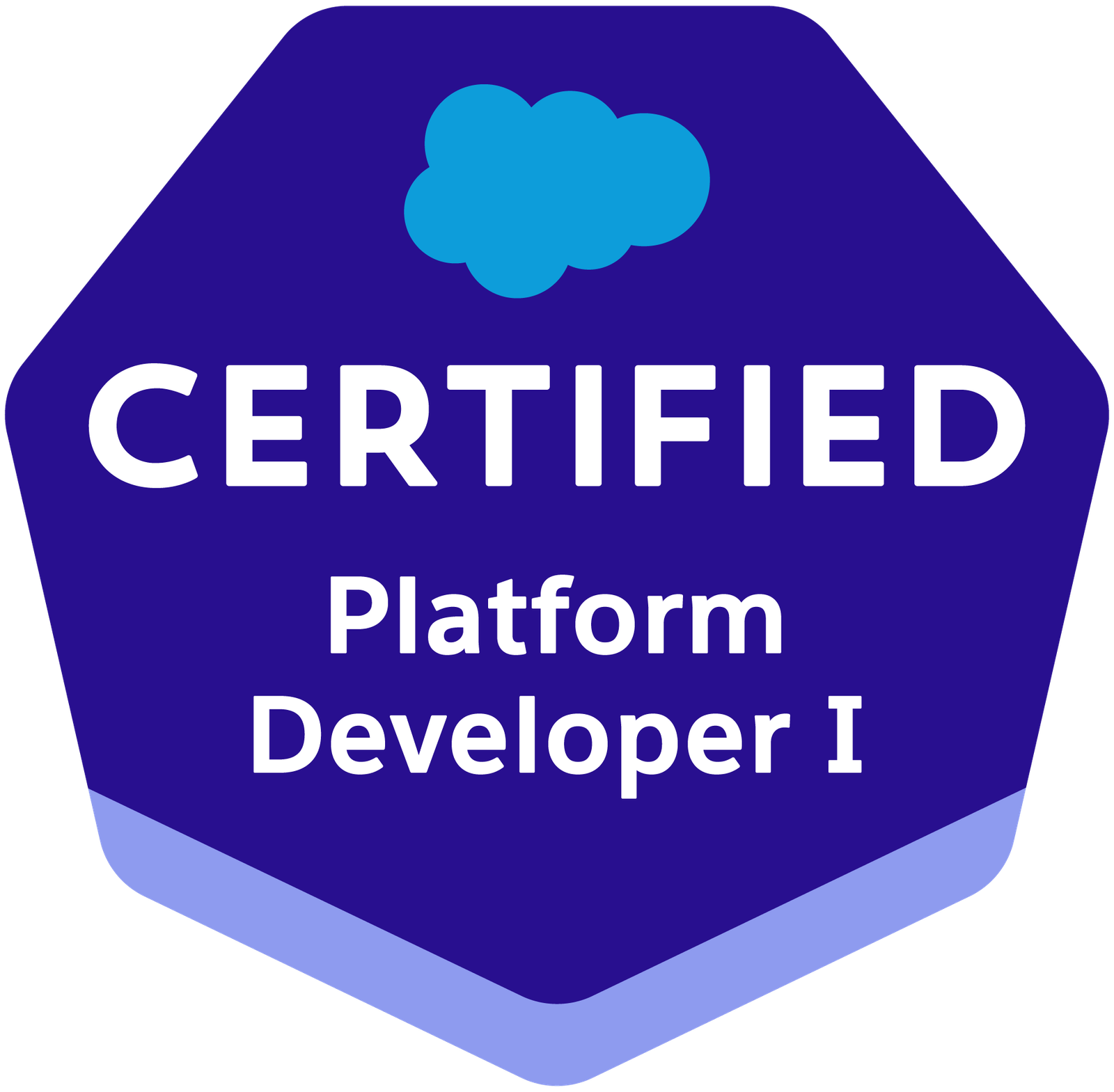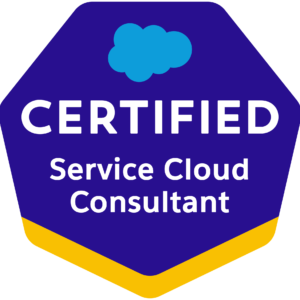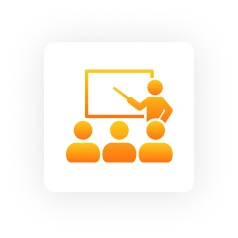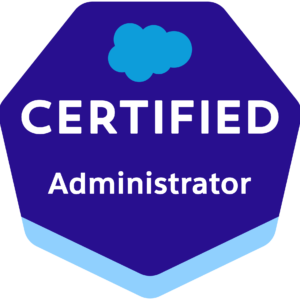Salesforce Platform Developer – I
₹22,000.00 Original price was: ₹22,000.00.₹20,000.00Current price is: ₹20,000.00.
₹22,000.00 Original price was: ₹22,000.00.₹20,000.00Current price is: ₹20,000.00.
(10 %Off)
40 Hours
(Classroom Training)
About Salesforce Platform Developer Course
A Salesforce Platform Developer is a skilled professional responsible for designing, building, and customizing applications on the Salesforce platform to meet specific business requirements. These developers possess a deep understanding of the Salesforce ecosystem, including its declarative tools and programmatic capabilities. They are proficient in programming languages such as Apex and JavaScript, enabling them to create custom functionalities, triggers, and Lightning components to enhance the Salesforce experience for users. Salesforce Platform Developers are pivotal in the development and deployment of solutions that streamline business processes, improve data management, and drive productivity across various industries. Their expertise in data modeling, integration, security, and optimization allows them to create scalable and efficient solutions tailored to an organization’s unique needs, ultimately contributing to the success of Salesforce implementations.
Furthermore, Salesforce Platform Developers are often responsible for maintaining code quality, adhering to best practices, and ensuring compliance with Salesforce governance and security standards. They play a crucial role in the development lifecycle, from requirement analysis and design to testing, deployment, and ongoing support. Their ability to translate complex business requirements into technical solutions makes them invaluable assets for companies seeking to harness the full potential of the Salesforce platform to boost sales, improve customer service, and drive business growth.
EASinCloud has vast experience in SFDC core and industry specific capabilities, this will drive enhanced learning path on training precise skills to students.
Salesforce Platform Developer Certification – Course Modules
Module 1: Introduction to Salesforce Development
1.1 Overview of Salesforce Platform
1.2 Role of a Salesforce Platform Developer
1.3 Key Development Tools and Resources
1.4 Setting Up a Salesforce Developer Environment
1.5 Navigating the Salesforce Interface
Module 2: Apex Programming Language
2.1 Introduction to Apex
2.2 Variables and Data Types
2.3 Control Structures (if-else, loops)
2.4 Collections (Lists, Sets, Maps)
2.5 Exception Handling
2.6 Trigger Frameworks
Module 3: Visualforce Pages and Components
3.1 Building User Interfaces with Visualforce
3.2 Creating Custom Controllers and Extensions
3.3 Component-Based Development
3.4 Visualforce Standard and Custom Components
3.5 Styling and Layout Techniques
Module 4: Lightning Web Components
4.1 Understanding Lightning Web Components (LWC)
4.2 Building Lightning Components
4.3 Event Handling in LWC
4.4 Component Communication
4.5 Lightning App Builder
Module 5: Data Modeling and Management
5.1 Salesforce Data Model Overview
5.2 Custom Objects and Fields
5.3 Relationships (Master-Detail, Lookup)
5.4 Validation Rules and Formula Fields
5.5 Data Import and Export
Module 6: Apex Triggers and Bulk Processing
6.1 Trigger Basics
6.2 Trigger Context Variables
6.3 Bulk Processing Best Practices
6.4 Avoiding Governor Limits
6.5 Debugging and Testing Triggers
Module 7: Integration and API
7.1 Integrating with External Systems
7.2 REST and SOAP APIs
7.3 Authentication and Authorization
7.4 Data Synchronization
7.5 Error Handling in Integrations
Module 8: Lightning Component Development
8.1 Lightning Component Basics
8.2 Lightning Component Framework
8.3 Building Lightning Applications
8.4 Working with Aura Components
8.5 Styling Lightning Components
Module 9: Testing and Deployment
9.1 Unit Testing in Salesforce
9.2 Writing Test Classes
9.3 Deployment Strategies
9.4 Change Sets and Ant Migration Tool
9.5 Version Control Best Practices
Module 10: Security and Access Control
10.1 Salesforce Security Model
10.2 Profiles and Permission Sets
10.3 Object and Field-Level Security
10.4 Sharing Rules and Record Ownership
10.5 Data Security Best Practices
Module 11: Performance Optimization
11.1 Understanding Governor Limits
11.2 Bulk Data Processing Optimization
11.3 Query and Search Optimization
11.4 Caching and Tuning Techniques
11.5 Monitoring and Debugging Performance Issues
Module 12: AppExchange Development
12.1 Building Managed Packages
12.2 Publishing on AppExchange
12.3 Licensing and Pricing Strategies
12.4 Security Review Process
12.5 Post-Deployment Support
Module 13: Lightning Experience and Mobile Development
13.1 Building Lightning Pages
13.2 Mobile App Development
13.3 Lightning Components for Mobile
13.4 Offline Data Access
13.5 Mobile User Experience Best Practices
Module 14: Advanced Topics
14.1 Platform Events and Streaming API
14.2 Heroku Integration
14.3 Blockchain and IoT Integration
14.4 AI and Machine Learning Integration
14.5 Custom Metadata Types
Module 15: Real-World Projects
15.1 Case Studies and Projects
15.2 Designing and Implementing Solutions
15.3 Code Review and Optimization
15.4 Best Practices for Project Delivery
15.5 Presentation and Documentation Skills
Course Conclusion and Certification:
- Recap of Key Learning Points
- Final Assessment and Exam
- Course Completion Certificate
- Next Steps in Your Salesforce Developer Journey
Related products
-
Uncategorized
Salesforce Sales Cloud
Rated 0 out of 5₹20,000.00Original price was: ₹20,000.00.₹18,000.00Current price is: ₹18,000.00. Add to cart -
Uncategorized
Salesforce Service Cloud
Rated 0 out of 5₹20,000.00Original price was: ₹20,000.00.₹18,000.00Current price is: ₹18,000.00. Add to cart -
Uncategorized
Salesforce Admin & App Builder
Rated 0 out of 5₹30,000.00Original price was: ₹30,000.00.₹27,000.00Current price is: ₹27,000.00. Add to cart -
Uncategorized
Salesforce Administrator Bootcamp
Rated 0 out of 5₹15,000.00Original price was: ₹15,000.00.₹13,500.00Current price is: ₹13,500.00. Add to cart







Reviews
There are no reviews yet.